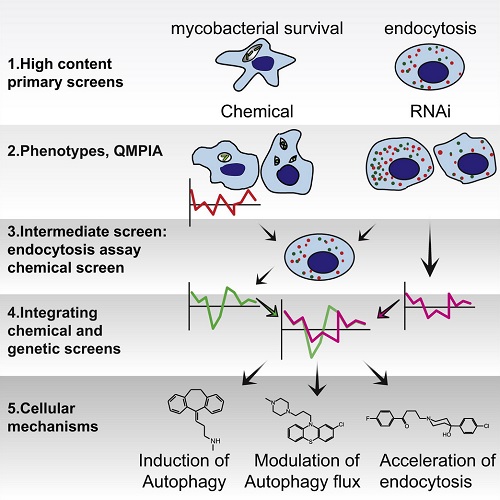Integration of chemical and RNAi multiparametric profiles identifies triggers of intracellular mycobacterial killing.
Pharmacological modulators of host-microbial interactions can in principle be identified using high-content screens. However, a severe limitation of this approach is the lack of insights into the mode of action of compounds selected during the primary screen. To overcome this problem, we developed a combined experimental and computational approach. We designed a quantitative multiparametric image-based assay to measure intracellular mycobacteria in primary human macrophages, screened a chemical library containing FDA-approved drugs, and validated three compounds for intracellular killing of M. tuberculosis. By integrating the multiparametric profiles of the chemicals with those of siRNAs from a genome-wide survey on endocytosis, we predicted and experimentally verified that two compounds modulate autophagy, whereas the third accelerates endosomal progression. Our findings demonstrate the value of integrating small molecules and genetic screens for identifying cellular mechanisms modulated by chemicals. Furthermore, selective pharmacological modulation of host trafficking pathways can be applied to intracellular pathogens beyond mycobacteria.

- Cell Host Microbe 2013 Feb 13;13(2):129-42
- 2013
- Cell Biology
- 23414754
- PubMed
Enabled by:
